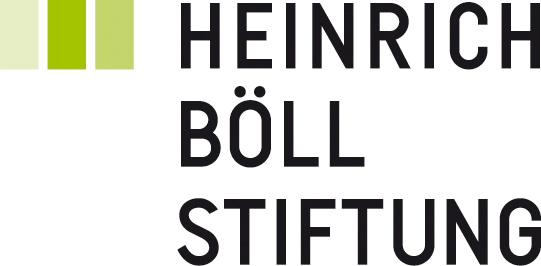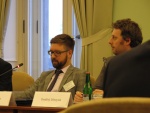The Impact of the Crisis in Ukraine on the Future of Arms Control
The Heinrich-Böll-Stiftung in Prague and the Institute of International Relations in Prague organized in cooperation with partners international conference "The Impact of the Crisis in Ukraine on the Future of Arms Control" which was held on 3 December 2014.
3. 12. 2014 (14:00)
This content is not up to date the Mirror Hall, Czernin Palace, Loretánské náměsti 5, Prague
At the height of the Cold War, the urgency arising from the possible consequences of an escalation in combination with economic considerations led to the process of arms control and disarmament. Although the fall of the Iron Curtain seemingly created a new more cooperative environment, it also decreased the sense of urgency to the detriment of a substantial follow-up to Cold War agreements. In addition, new frictions and conflicts appeared. The latest manifestation of the creeping return of a certain Cold War mentality is the crisis in Ukraine. Mutually assured destruction – the essence of deterrence policy during the Cold War – unfortunately seems to remain a factor of the current security architecture in the 21st century. This may not change as long as thousands of nuclear weapons continue not only to exist but also to maintain their role in national security doctrines.
Ninety percent of these warheads are held by the United States and Russia. Even before the crisis in Ukraine, efforts to reduce armaments through a cooperative arms control approach in Europe had begun to run aground. The US withdrawal from the ABM treaty, serious doubts about the implementation of the INF treaty, effective suspension of the CFE, differences over new missile defence deployments and the inability to pursue shared interests with Russia are the most visible examples that cooperation is increasingly being replaced by competition. Cold War-type arms control, with its goal of establishing a strategic balance, may no longer be enough. The question, therefore, is how seriously the crisis in Ukraine will undermine the path towards a less-militarised world, and how the situation can be salvaged in order to make progress in both unconventional and conventional arms control and disarmament efforts.


Programme:
13:30 – 14:00 Registration
14:00 – 14:20 Welcome and introductory remarks
- Petr Kratochvíl, Institute of International Relations in Prague, Director, TBC
- Serhii Moskaliuk, Embassy of Ukraine in Prague, Defence Attaché
- Eva van de Rakt, Heinrich-Böll-Stiftung Prague, Director
14:20 – 15:45 Panel I: Implications of the Ukrainian crisis for conventional arms control
Russia's annexation of Crimea and its infiltration of the sovereign state of Ukraine have turned the tables of the security order in Europe, which has been based on inviolability of state borders. What effect will this have on conventional (de-) militarisation in Europe, and what are the prospects for future arms control efforts such as the currently suspended Treaty on Conventional Armed Forces in Europe (CFE)? How can the risks of further military re-deployment in Central and Eastern Europe be mitigated? What new efforts or treaties can be conceived of that would lead to a more predictable, secure and less-militarised Europe?
Panelists:
Chair: Gregor Enste, Heinrich-Böll-Stiftung Berlin
- Bernd Kubbig, Peace Research Institute Frankfurt
- Ulrich Kühn, Institute for Peace Research and Security Policy
- Mykhailo Samus, Defense Express News Agency, TBC
- Jiří Schneider, Prague Security Studies Institute
15:45 – 16:00 Coffee break
16:00 – 16:25 "The Ukraine Crisis, West-Russia Relations and Arms Control"
Keynote address by Steven Pifer, Director of the Brookings Arms Control Initiative and a former US ambassador to Ukraine
16:25 – 18:00 Panel II: The future of nuclear disarmament in the light of the crisis in Ukraine
There is a real danger that the crisis in Ukraine could reinforce the role of nuclear deterrence in European security. What can be done to avert such a development? What are the perceptions in different NATO states, other European states and in Russia of the role of nuclear weapons in European security? What can be expected of NATO in terms of its own nuclear policies? What instruments do we have at our disposal to reduce reliance on nuclear weapons? Five years after President Obama's historic Prague speech, what steps can be undertaken towards achieving the goal of eliminating nuclear weapons globally?
Panelists:
Chair: Ondřej Ditrych, Institute of International Relations in Prague
- Mark Hibbs, Carnegie Endowment
- Maria Rost Rublee, Australian National University
- Nikolai Sokov, Vienna Center for Disarmament and Non-proliferation
- Hui Zhang, Harvard University
You can find the programme here.
Working language: English
Photos
Auspice
Heinrich-Böll-Stiftung in Prague, Institute of International Relations
